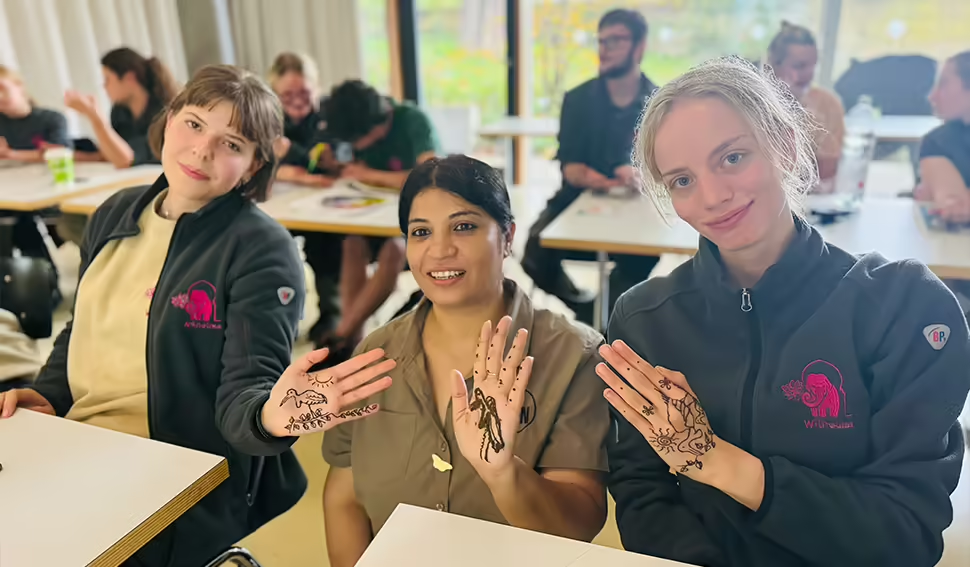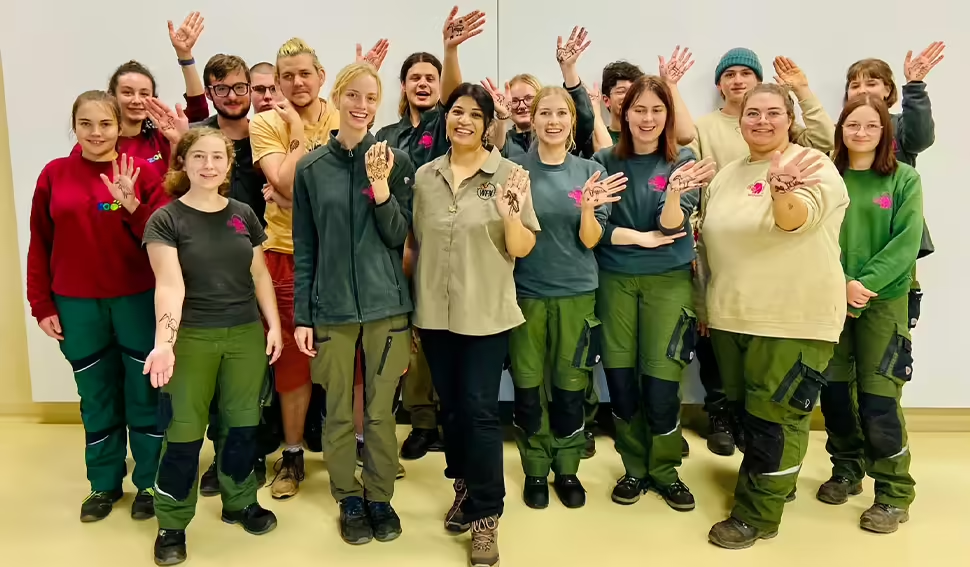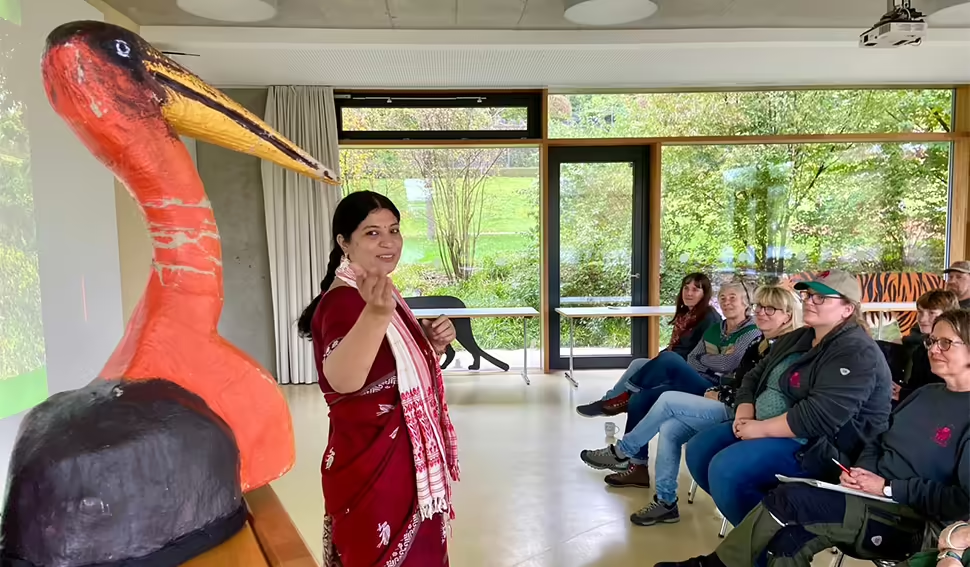Purnima Devi Barman’s environmental workshop in Germany powered with baby shower ceremony of Hargila in Assam

Renowned conservationist and Whitley Gold Award winner from Assam, Purnima Devi Barman, conducted a special environmental workshop that included a panchamrit ceremony, or baby shower, for the Greater Adjutant Stork (Hargila) at the Wilhelma Zoological and Botanical Garden in Germany on Friday.
The event was designed for 20 conservation-oriented youths, zookeepers, and gardeners, blending education, art, and environmental awareness in a unique format. Barman kicked off the session by introducing the participants to Assam’s rich biodiversity, with a particular focus on various stork species, especially the rare Greater Adjutant Stork.
This innovative workshop aimed to raise awareness about the importance of conserving these remarkable birds and their habitats while fostering a sense of responsibility among the participants to engage in conservation efforts. Barman’s efforts reflect a commitment to both local and global environmental stewardship, showcasing the interconnections between cultures and ecological preservation.
She called upon all the youths to acquire deep love for the respective biodiversity surrounding them. She then shared the inspiring journey of the “Hargila Army,” a community-driven conservation initiative led by the women of Assam, working to protect the Hargila and its habitat.

The workshop included songs based on environment education and a symbolic ‘Panchamrit’ (baby shower) ceremony, which emphasized the care and nurturing required for the wellbeing of Hargila chicks.
She played Assamese Naam Kirtan (community prayer) videos of the Hargila Army women and requested the students to connect with the Assamese women from the Hargila Army.
She explained about the significance of ‘Panchamrit’ceremony and then also told that expectant mothers among bird species also need the same respect and celebration symbolically and urged the participants to do the same.
Purnima described how she and her team celebrated the baby shower of hargila every year to create awareness of the mother hargila and their babies. She told that nature is also about motherhood and we need to realise and respect it.

Additionally, the workshop also included lots of other creative activities including birds bill clattering songs. Barman engaged the participants in creative activities such as Hargila-themed painting, ‘jetuka’ art, and music, encouraging them to connect with conservation efforts through art and culture.
A highlight of the event was the performance of Assamese Naam-Kirtan by the Hargila Army, which deeply resonated with the attendees. Dr. Barman also demonstrated bird calls and led educational games, making the learning experience both engaging and enjoyable. The youths found the workshop insightful and inspiring.
“Meeting these young people fills me with hope and optimism. They are truly the solution to the challenges we face in conservation,” said Dr. Barman. My mission also includes to meet all the young people of the world and to give them hope and optimism so as to love nature and to be nature ambassadors.
Earlier, on October 16, Dr Barman had conducted another successful workshop with 20 conservation educators at Wilhelma, focusing on Hargila conservation and the importance of coexistence education. She shared key insights on how coexistence education is integrated into conservation efforts in Assam.

In addition, Dr. Barman attended a teachers’ training programme organised by officials of Wilhelma Zoo, where she learnt and exchanged ideas sharing her experiences from Assam’s environmental education and teacher training programmes, emphasising the importance of educating the next generation to protect the nature.
Purnima Devi Barman’s workshops at Wilhelma have strongly represented Assam’s biodiversity, rich culture and highlighted the global importance of conservation and the role of education, art, and cultural exchange in inspiring communities to take action for conservation of endangered species like the Greater Adjutant Stork.

Leave a Reply